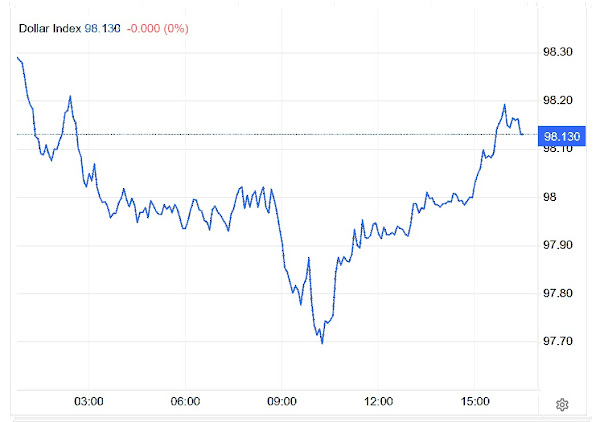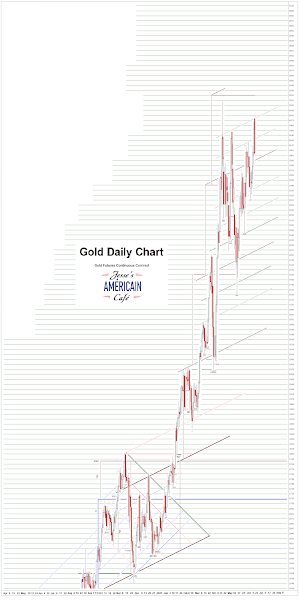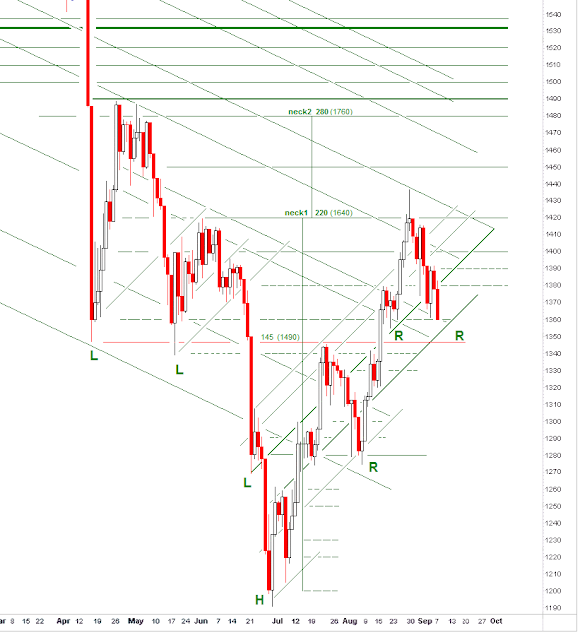"It is no exaggeration to say that since the 1980s, much of the global financial sector has become criminalised, creating an industry culture that tolerates or even encourages systematic fraud.
The behaviour that caused the mortgage bubble and financial crisis of 2008 was a natural outcome and continuation of this pattern, rather than some kind of economic accident."
Charles H. Ferguson
It is interesting to see the reaction that Michael Lewis has made with his new book,
Flash Boys.
The furor is in large part over a quotable quote that is attributed to the book's major protagonist, 'the stock market is rigged.'
I am not going to get into the deficiencies of the book's moral argument, and the spin that is being put on this problem. It has finally become 'a problem' because the cheating that was going on started to visibly hurt the wrong people: the rich and well connected.
To that extent, it is quite similar to the market manipulation that was known as
'the London Whale' in which trading companies complained that JPM was dislocating the market, and screwing with their profit stream, with the company's antics. Then the regulators got involved and shut it down.
I spoke to the shortcomings of the story's moral argument yesterday,
60 Minutes Sanitizes Its Report - What Banks, What Exchanges?
What is fascinating now is watching the reaction that people are exhibiting to the book and its assertion of market manipulation, with quite easily understood evidence in support of it I might add.
Yesterday there was an argument on one financial television show that literally stopped the Madame Tussauds wax museum-like trading on the floor of the NYSE. The reaction of the apologist for the status quo of systemic skimming, or front running as you prefer, was apoplectic with his reaction to this scheme being unmasked. It called to mind Victor Hugo's observation that 'frightened hypocrisy hastens to defend itself.'
(postscript: with a few days the CEO apologist was persuaded by the New York Attorney General to retract his description of how his platform works, since it was false and in fact DID advantage HFT traders as the other fellow had described. Nice. Too bad the network doesn't fact check.)
This morning on another financial network, more directly beholden by Wall Street interests, Michael Lewis was interviewed, and it was the turn of the anchorpersons themselves to roll out the indignation on behalf of the industry that cuts their paychecks, and variously attack and parse the offending statement, 'the market is rigged.' They had a go at it, and then changed the subject.
But the same anchorperson who compared Wall Street traders to children, who cannot help themselves except to try and break mom's rules, took a different tack this morning. Today we heard that Wall Street traders have no moral imperative, no operative sense of right and wrong. That is, their only task is to make money in whatever way that is possible, even if it means cheating, lying, and even creating false opportunities to defraud other people.
A good trader suppresses any sense of morality and law, except as an obstacle to be overcome. When they cheat and steal it is the fault of the regulators, because they are not smart enough and fast enough to stop them. And these are the same people that we claim should therefore be self-regulating.
But the most shocking thing was that Michael Lewis agreed.
"I don’t regard high-frequency traders as villains. It is like blaming the lion for eating the antelope. They are wired that way. I think the system is screwed up to exploit opportunities, exploit glitches in the system. They’re not wired to say that this is moral or immoral; they aren’t wired to say is this good for the world. They don’t think that way.”
Ah the noble lions. Or perhaps more appropriately jackals, based on how they feed in the dark on the weak. Remember this the next time someone asks a financier for their recommendations on public policy and first principle social issues.
The irony of course is that this description is that of functional sociopaths at best, psychopaths at worst. They are 'wired' to seek self-gratification without regard to moral considerations, conscience, or consequences.
Rather than just saying the market is rigged, the anchors and Michael Lewis agree that the market is now founded on sociopathic behaviour, whose primary directive is to game the system and defraud the other market participants in the most clever ways that they can. Not by producing anything, not by contributing anything real to society, but by being very successful conmen. And all the parties nodded their heads in agreement.
Psychopathy is a medical condition, whereas sociopathy is a learned behavior that is often environmentally born. And it is therefore contagious. Psychopaths just have a natural advantage
if they have no conscience or empathy to suppress. Willful moral blindness for selfish ends is an acquired skill, and the domain of the sociopath.
What a hell of a way to set up a critical social system, to seek out and incent sociopathic behavior.
Whenever you hear this sort of rationalizing about the profit imperative alone, it is often said about Wall Street traders and their special status in finance. But take the same scenarios, the same moral principles, and apply them to some other professions. What if this principle was the basis of the medical profession, or the food industry, or retail stores?
Yes, doctors will always find some way around the regulations in order to falsely charge and do harm to their patients, mostly without killing them outright to their credit, as long as they can make money at it which is their primary objective. And that is the system we have set up, and there are few consequences against it.
Gas stations will always find some way to cheat their customers by short changing them and faking repairs, because their purpose is to make money any way that they can, and it is our fault for not stopping them. If we catch them, they receive a token fine as a cost of doing business.
They will say that we need to teach the public to be better judges of mechanical repair issues. It is not the mechanics fault. It is just how they are and what they do. And you can apply that rationalizatin to any number of professions, from plumbers to electricians to zoo keepers to Congressmen.
The moral blindness of those caught up in this culture of deceit is appalling. The notions they hold would never be tolerated in any other undertaking. But financial crime pays, and the tricks and abuses they perpetrate are less obvious in their effects than a dead child or a woman made blind through quackery. But they do have effects, and they are killing us.
The purpose of the stock market is to encourage investment and the efficient allocation of capital in productive activities. But tiers of complexity are added to hide and deceive investors, by cadres of admittedly very smart people who not only perform no useful function, but who in any other industry would be shunned.
This moral blindness is tolerated because there is very big money involved, and the potential for very negative career consequences. As they say, it is
the bribe or the bullet. It is easy to excuse because it involves 'white collar' crimes that engage wide swaths of the most influential voices in our society.
They retreat into blaming the victims, silencing the critics, repressing even peaceful protests, praising their own exceptionalism, and coercing the outliers, others, and dissidents. The system is the lie, and so the lie must be protected for the sake of the system.
I wonder if there is a need to have news people, and economists, and politicians to take some basic courses in ethical behavior. They are certainly doing a wonderful job of suppressing their moral sensibilities when it comes to financial fraud, even if the laws do not overtly define and indict these abuses as 'crimes.'
And when someone points out the hypocrisy and fraud, they first ignore them, and then panic and attack. How dare they undermine the confidence of the system! For they have become creatures of the system, and that is a big part of the problem in the credibility trap.
They do not get it. They are suffering from a severe case of moral blindness as described by Upton Sinclair when he said, 'It is hard to get a man to see something when his paycheck depends on his not seeing it.'
And the example they give as public figures, from Wall Street to the Beltway, is rotting the future of our country, down to the bone.
The cure for this is relatively straightforward if you understand the problem as one of pervasive corruption. We are in a state of serious moral hazard, in which crime pays. It really is no different from other situations where whole towns and areas can be undermined by gangsters and graft.
You start with the law, and put some heft behind it. You stop giving the powerful and the well-connected a pass on fraud, or just wristslap fines. You put the right people in regulatory positions, and enough of them, and back them especially when they go up against the major syndicates. You put the message out, and then make it stick. How did Roosevelt clean up the financial industry after the 1920's?
It won't be easy, because so many have been caught in the credibility trap. We need to find our best, who have a strong moral sense and public spirit, and then give them whatever support and encouragement that they need. If we are not doing that, and we are not, then we need to find out why and fix it. That will take leadership. And since greed and fear have so many in their grip, our short term problem is that we do not have any.
"Capitalism is at risk of failing today not because we are running out of innovations, or because markets are failing to inspire private actions, but because we’ve lost sight of the operational failings of unfettered gluttony.
We are neglecting a torrent of market failures in infrastructure, finance, and the environment. We are turning our backs on a grotesque worsening of income inequality and willfully continuing to slash social benefits.
We are destroying the Earth as if we are indeed the last generation."
Jeffrey Sachs, Self-interest, without morals, leads to capitalism’s self-destruction
The world sees this, even if the people of the US and UK do not yet realize it. The world is watching, and there will be consequences. Money and confidence will die first on the periphery, and then the deluge may come.





































































